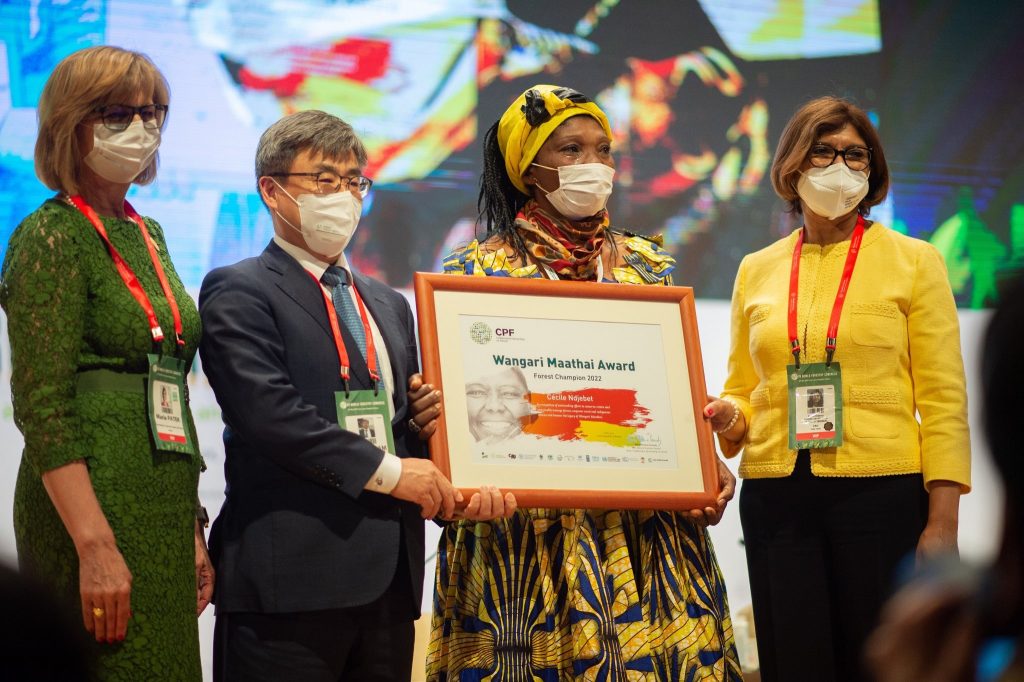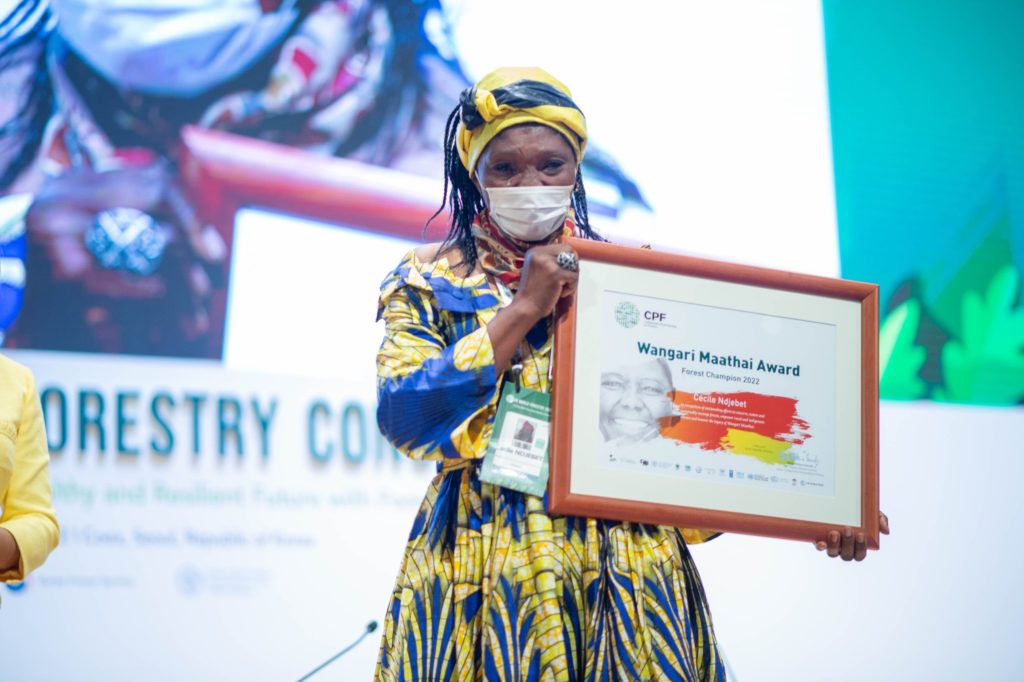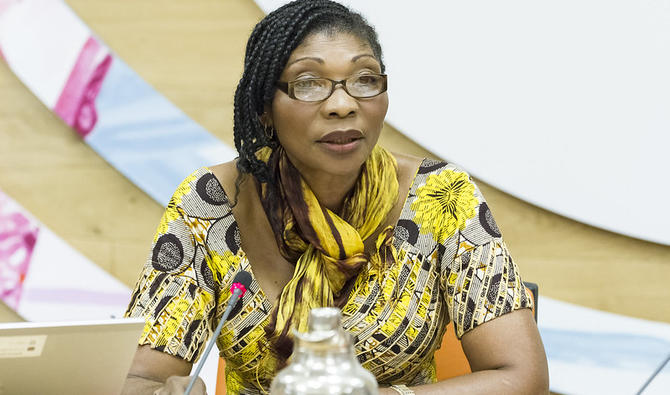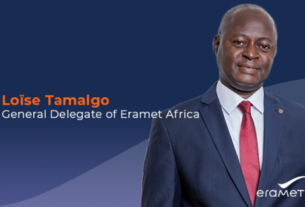Presented by the Collaborative Partnership on Forests (CPF), which is chaired by the Food and Agriculture Organization of the United Nations (FAO), the award was presented on May 5, during a ceremony at the 15th World Forestry Congress in Seoul, Republic of Korea. The Collaborative Partnership on Forests comprises 15 international organizations working together to promote sustainable management of all types of forests and strengthen long-term political commitment to this end.
Established by the CPF in 2012 in memory of Kenyan environmentalist and Nobel Peace Prize winner Wangari Maathai, the Forest Champions Award recognises inspiring individuals who have helped preserve, restore and sustainably manage forests. This year’s award winner met Wangari Maathai in 2009, and the environmentalist personally encouraged Ndjebet in her work to support women planting trees.
Activist Cécile Ndjebet, of Cameroon won the 2022 Wangari Maathai Forest Champions Award in recognition of her outstanding contribution to preserving forests and improving the lives of people who depend on them.“This award celebrates Cécile Ndjebet’s energy and dedication over three decades in promoting women’s rights to land and forests. She has actively shown that women’s participation in forest governance and preservation is fundamental to achieving sustainable forest management,” said FAO Deputy Director-General and CPF Chair Maria Helena Semedo.

Roughly 70percent of women in Cameroon live in rural areas and are dependent at least in part on harvesting wild forest products for their livelihoods, yet in some communities women are denied the right to own forest land, inherit it if their husband dies or even to plant trees on degraded land.
Championing gender equality
Cécile Ndjebet is an Agronomist and Social Forester by profession and gender specialist and Women Leadership trainer and adviser. With 34 year of field experience, Cécile has an extensive experience on gender mainstreaming and women’s rights in policies, mechanisms, programs, initiatives and processes related to natural resources management: Gender and tenure, gender and REDD+ and gender and climate change. She started her professional career as a Cameroonian Civil servant, joined the civil society Organizations, and founded a national NGO Cameroon Ecology in 2000 and has been advocating for community rights – including rural and Indigenous women – to forests, land and natural resources.
Ndjebet has tirelessly promoted the concept that women should be involved in forest management and have equal rights to forest land and resources – and that when they do, forests are better preserved and entire communities benefit.
Through the African Women’s Network for Community Management of Forests, which she co-founded in 2009, Ndjebet has become a leading voice, both in Cameroon and internationally, in building global recognition on the importance of gender equality in forest management. The organisation now has 20 member countries across Africa.
“Men generally recognise the great role women play in improving families’ living standards,” Ndjebet said. “But it is important for them also to agree that for women to continue to play that role, and even improve in that role, they need secure access to land and forests.”

Ndjebet has long been a driving force in implementing forestry law and good governance in Cameroon and establishing a new approach on community forestry and the restoration of degraded lands and forests through Cameroon Ecology (Cam-Eco). Cam-Eco has worked to inform, train and support women to understand sustainability issues and to get involved in forest conservation and restoration.
Previous Wangari Maathai Forest Champion Award winners are Nepalese community forestry movement leader Narayan Kaji Shrestha (2012), Mexican environmental campaigner Martha Isabel ‘Pati’ Ruiz Corzo (2014), Ugandan forestry activist Gertrude Kabusimbi Kenyangi (2015), Brazilian forestry activist Maria Margarida Ribeiro da Silva (2017), and Burundian forestry activist Léonidas Nzigiyimpa (2019).



